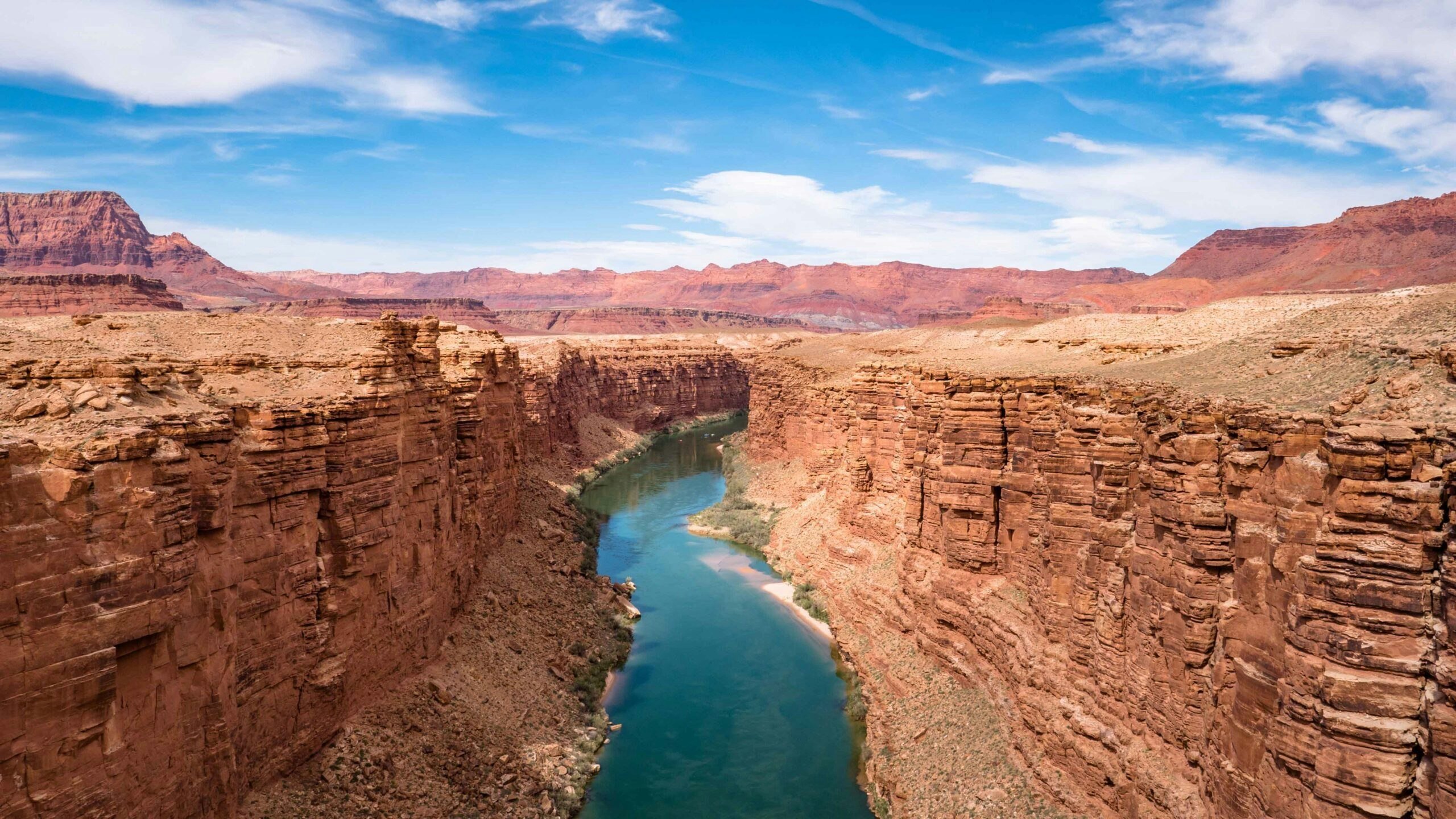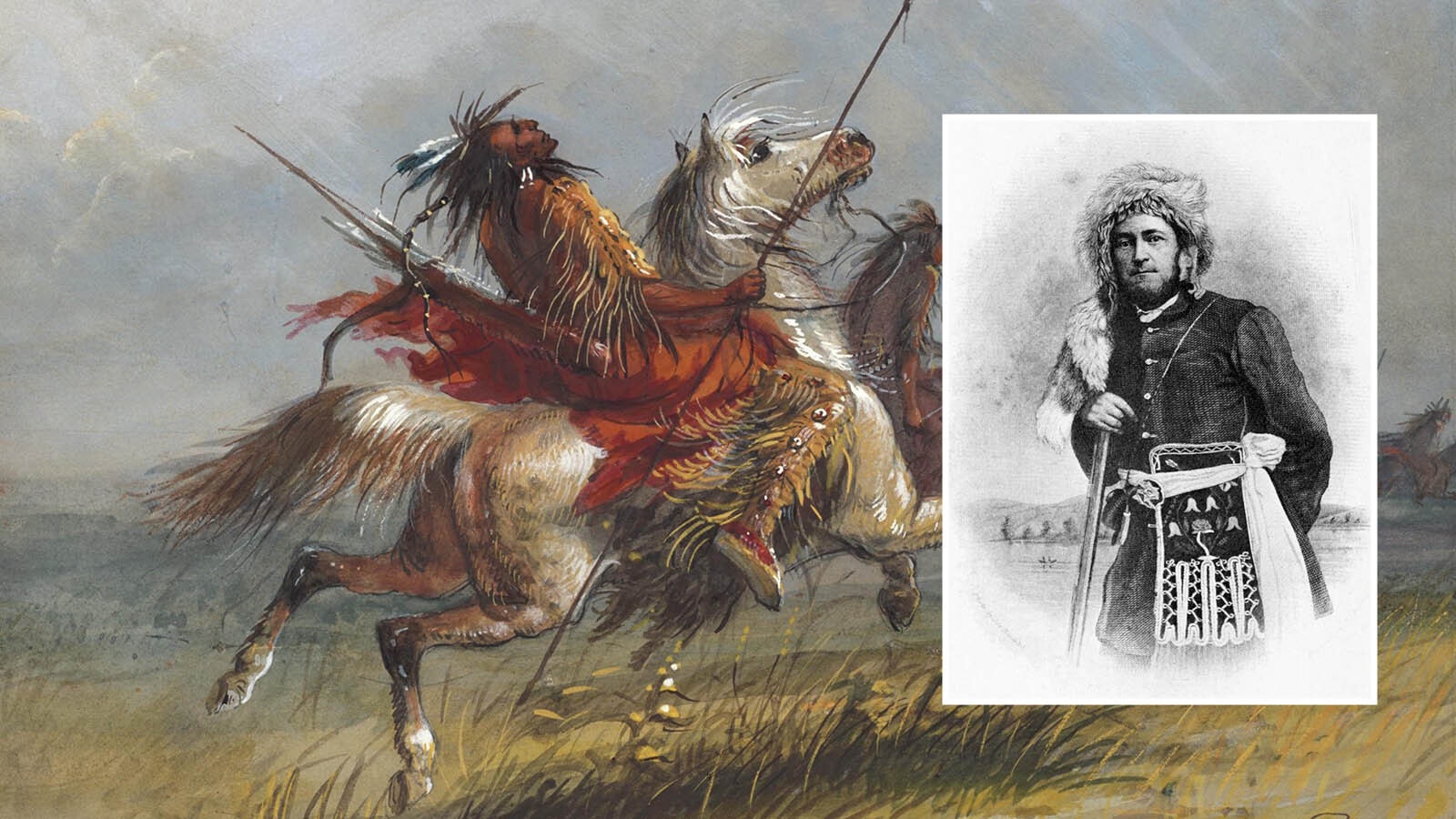Tensions could be rising again over plummeting levels of water in the Colorado River – and a squabble between California and Arizona over access to Lake Mead could be latest barrier to addressing the crisis, an official said.
Officials and water experts from seven states along the Colorado River and its tributaries met late last year. They hoped to come up with a short-term solution to the drought crisis on the river. The states include Wyoming, Colorado, Utah, Nevada, New Mexico, Arizona and California.
The headwaters of the river are in Wyoming and Colorado.
The states agreed to have a mutual set of water conservation proposals ready by Wednesday, and all but California were onboard, Chuck Cullom, the executive director of the Upper Colorado River Commission, told Cowboy State Daily.
The commission includes members from Wyoming, Utah, Colorado and New Mexico. A request for comment from the Wyoming’s member of the commission, state engineer Brandon Gebhart, wasn’t answered on Wednesday.
California Hesitates
“In December (all seven) basin states committed to working toward a consensus approach the managing the river from now until the end of 2026,” Cullom said.
The idea was to have proposals ready by Feb. 1 to present to the Bureau of Reclamation and the Department of the Interior, he said. Those are the main federal agencies in charge of the river and infrastructure along it, such as dams and reservoirs.
“California wasn’t able to sign on to that, they submitted a California perspective yesterday (Tuesday),” he said.
The other six states would like to act now, particularly calling for cuts in water being released from Lake Mead, he said. However, California wants to wait, and also thinks more water can be taken from Lake Mead.
California, Arizona Can’t Agree On Lake Mead
The main sticking point is between Arizona and California, the states most dependent upon Lake Mead, Cullom said.
Arizona and the other states would like to see releases from Lake Mead limited to roughly 2 million acre feet of water over the next three years. But California would like the limit raised to 3 million acre feet.
An acre foot of water is amount that would flood one acre of land to the depth of a foot.
“The question now is who bears the brunt of the limitations?” Cullom said. “Are there accommodations for the tribes and cities? How doe you take these Draconian reductions and spread them across the largest cites and agricultural water users in the Western United States?”
It’s not certain where things will go from here, he said. But it’s hoped that California and Arizona can come to an agreement and get the process moving again.
What About Wyoming?
Both California’s proposal and that favored by the six other states are relatively similar, barring the disagreement over how much water to take from Lake Mead, Cullom said.
“At least from the upper basin perspective, both proposals would respect existing water obligations,” he said.
However, there still could be requests for more releases from Flaming Gorge reservoir, he said.
Last year, 500,000 acre-feet of water was released from Flaming Gorge to ease the increasingly desperate need for water in Lake Powell, Lake Mead and elsewhere down the Colorado River Drainage.
Wyoming, like the other states, is under obligations set by the century-old Colorado River Compact.
Under the compact, the upper basin states are expected to provide 75 million acre-feet of flow per decade, as measured at Lees Ferry in Arizona.
Bill To Protect Wyoming Interests Dies
Some have criticized that arrangement as a raw deal for Wyoming, because the Colorado River Compact was drawn up when there was far less downstream demand for the water that originates from snowpack in mountains here.
Meanwhile, a bill that would have created a board in Wyoming called the Colorado River Authority didn’t pass introduction into the Wyoming House of Representatives on Tuesday.
Under House Bill 60, a Colorado River Authority board would have been appointed to protect the state’s water rights on tributaries to the Colorado River that flow through Wyoming.
The bill’s sponsor, Speaker of the House Rep. Albert Sommers, R-Pinedale, was unavailable for comment on Wednesday.





